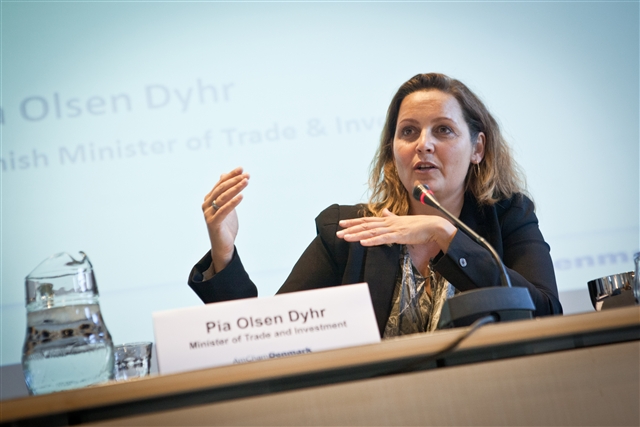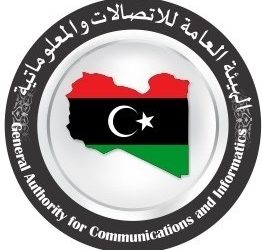By George Grant.

Tripoli, 22 November:
A senior Danish government minister has challenged traditional stereotypes of Libya as a hostile environment for foreign . . .[restrict]businesses, saying that Tripoli is no more dangerous than Tunis.
Trade and Investment Minister Pia Olsen Dyhr made the remarks during a visit to the capital as part of a three day Danish trade mission running from 21-23 November.
“I think there is a different picture in my country’s media to the reality here”, Olsen Dyhr told the Libya Herald on Thursday. “I feel safe; I don’t feel any problems in Tripoli where I’ve been… I actually wrote home last night on Facebook to some friends, ‘I am safe, don’t worry, it’s actually very interesting being here and you could as well go here as you could to Tunis’.”
The minister also praised what she described as the “professional set-up” of Libyan businesses she visited in Tripoli and said that “now is the time” for foreign companies to enter Libya.
Yesterday, Olsen Dhyr visited Tripoli’s privately owned Ouadi Rabea flour factory, along with a public-private bus factory 25 per cent owned by the Italian firm Iveco and 75 per cent owned by the Libyan government.
“The minister wanted to see some of the production companies in Libya to get a sense of what they can produce”, said an official at the Danish Embassy. “She was very impressed by what she saw, by the way she was welcomed by the two companies and what she regarded as the professional set-up.”
Ten companies are accompanying Olsen Dhyr on the trade mission, including Siemens’ plant-engineering software arm COMOS; the specialist ordnance disposal and security company Damasec; the pharmaceuticals company LEO Pharma; and the marine and energy sector engineering company Semco Maritime.
“Libya is a rich country with a lot of natural resources, but they also have the challenge of building up their society after the revolution”, Olsen Dhyr said. “They have to build up a healthcare sector, their infrastructure, managing their environment safely; there are many fields, in fact, in need of businesses coming to the country both partnering up with Libyan companies but also building up their own businesses”.
One of the biggest challenges for overseas companies wanting to come to Libya, the minister said, was the relative difficulty they experience in navigating the system. “It is still a country where you have to find your own feet… [learning] how do you do business here, and I hope that when the Danish companies talk to the Libyan companies they can actually see more clearly how to do business here, and maybe they can also set a standard of doing good and reliable business”.
The Minister also said she saw it as the responsibility of her government, through the Danish embassy in Tripoli, to fully inform Danish companies considering whether or not to bring their business to Libya.
Olsen Dhyr’s was the third ministerial visit to Libya since the revolution, preceded by two visits by Denmark’s minister of foreign affairs earlier this year.
Denmark was amongst the strongest supporters of the 2011 uprising that toppled the regime of Muammar Qaddafi, with Danish jets flying roughly 20 per cent of NATO’s sorties over Libya last year. [/restrict]








